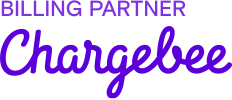Halal food is a crucial part of the day to day life of Muslims world wide since it ensures that the food and beverages they consume do not conflict with their religious belief in terms of having the meat and poultry slaughtered in accordance to Shariah and food and beverages free from alcohol and pork to name the main criteria for Halal food consideration.
Since the Muslim population is spread across all continents and their purchasing power is not to be underestimated, the food industry even outside Islamic countries starts to address these needs through providing products compatible with Muslims.
So companies like Nestle, Unilever as well as fast food chains such as KFC in the western world offer a variety of their products labeled as being Halal.
On the other hand, Islamic Finance has grown tremendously during the last two decades resulting in the offering of financial products and especially capital market instruments such as equity investments that are Shariah-compliant and accessible for Islamic investors.
The interesting element in the Halal industry and Islamic Finance is that from a Shariah perspective Muslims might be allowed to consume the food of a company but are not allowed to invest it in and vice versa! How come?
So a company might only produce Halal Food but financed its operations through interest-bearing debt that from a Shariah perspective if exceeding specific thresholds is non-compliant and thus cannot be invested in.
Therefore IdealRatings, Thomson Reuters and the World Halal Forum partnered to provide the first investment universe that contains constituents that are both consumable and investable from a Shariah perspective for Islamic investors.
The Socially Acceptible Market Investing, or SAMI, Halal Participation Index currently contains more than 200 equities of companies domiciled in Islamic countries, which produce and serve Halal food and pass a series of Shariah screening criteria as defined by AAOIFI. To capture global demand we will be extending the Halal universe beyond Islamic countries.
The SAMI Halal Index series has been launched during the World Halal Forum this month in Kuala Lumpur in Malaysia and has gained huge attention in the Malaysian market due to the uniqueness and relevance of such a product to promote both the Halal Food industry and also Islamic Finance.
On one side, investment professionals perceived the index as an excellent investment opportunity since a product based on such an index would be easily understood by Islamic Finance investors since they can identify themselves with the investments to be conducted because it would be based on companies whose products they buy from the shelves of supermarkets or consume their goods.
On the other hand, it has also been indicated that this product can support in promoting Islamic finance since it is inconsistent to be able to consume a companies’ product but not allowed to invest in it from a Shariah perspective. Therefore an opportunity exists that these companies change their current conventional financial structures in terms of debt financing and excess cash investments to be also Shariah-compliant from an investment perspective.
Therefore, the partners of the SAMI Index series considered this the beginning of the fully-fledged Islamic Food Supply Chain Process “The 4 F’s: financing, farm, fork and again financing”.
Shehab Marzban

